What to Do IMMEDIATELY After SHTF
On the morning of December 26, 2004, the deadliest tsunami in our modern history took the lives of over 230,000 people in just a matter of minutes. They had no warning and nowhere to hide. There were reports of waves reaching heights of 100 feet and traveling at speeds of up to 500 mph! Its aftermath left a total of 18 countries, including India, Indonesia, and several other Indian Ocean countries completely devastated, while displacing millions of people. It’s important to know what to do immediately after SHTF.
What to Do IMMEDIATELY After SHTF
Now I want you to imagine for a minute if you were walking along the beach that morning and witnessed those terrifying waves crashing towards you. Besides wetting your pants, you may be immobilized by fear. But when we’re faced with a traumatic event, the last thing that you want is to be caught frozen in our steps. It could literally kill you.
You may have all the prepping equipment and supplies in the world at your disposal, but if you don’t know what to do when the time comes, it’s not going to matter. Being prepared for any type of disaster is a great place to start, but it’s critical that you know what to do immediately after SHTF.
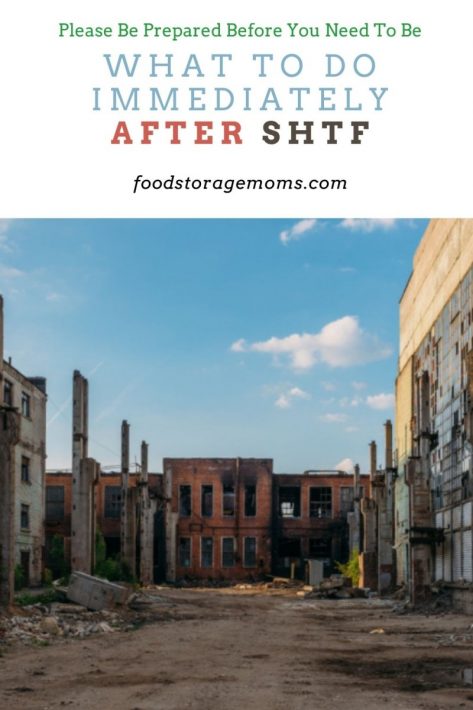
Stay Calm and Get to Safety
This bit of advice is easier said than done, but remaining as calm as possible will help you to make better, quick decisions and allow you to help others who may not be coping with the situation as well as you are. At the same time, make it your number one priority to get away from the immediate danger as quickly as possible. Whatever the emergency may be, whether it’s a natural disaster or an active shooter at a grocery store, do whatever it takes to get you and your family to a safer location.
Treat Injuries
Once the threat has passed and you’re in a safe location, now’s the time to inspect and treat any injuries that you or your family members may have received. Use your first aid kit to try and manage any life-threatening injuries to hold them over until you can find a doctor or get to a hospital. Even if you’re only dealing with minor cuts and scrapes, be sure to clean and treat them so that they don’t become infected.
Communicate with Family and Friends
If you’re separated from your family when SHTF, you’re going to need to communicate with them, to let them know where you are, and whether you are safe. Communicating with them will allow you all to meet up at a certain agreed-upon location should you need to do so.
It also wouldn’t hurt to let your extended family and friends know your current situation and give them updates every few hours. Even if your cellphone happens to be working, you’ll probably have a hard time getting through due to the surge of calls in your area. If you can’t reach them, be sure to leave a text message at the very least.
Things to Look For
Now it’s time to find out how serious of a situation you’re dealing with, whether it’s a local disaster or if it affects a much larger region. Learning this information early on will determine if your family should make the decision to bug-in or bug-out. You’ll be needing your handheld radio to gather important information and if they’re encouraging you to evacuate. These are other things to look for:
- Does the danger appear to be local, or much bigger?
- What do you hear? (Sirens, horns, traffic, gunfire…)
- What does the weather/sky look like?
- Do you still have power? If not, just how widespread is the power loss?
- Are people coming out or staying inside their homes?
Fill Up on Gas
Following a major catastrophe, one of the first places that people generally head towards is the gas station, especially when you need to get as far away from town as you can. If you’re able to find one that doesn’t have long lines, I’d encourage you to fill up on gas and purchase any last-minute supplies. I’ve told my readers for years to keep their car’s gas tank between 1/2 to 3/4 full at all times. This makes it possible to leave the area without having to fill up first.
If your car is no longer operable due to an EMP attack, or some other reason, you’ll need to gather any supplies from your car that you may need and put them in your survival bag before setting off on foot or using other transportation methods that are still available to you.
Other Important Steps to do Early On
There’s a whole host of things that you need to consider following a disaster. These are some of the most important ones for you to remember:
- Review your emergency plan with your family.
- Turn on your handheld radio as soon as you are able to.
- Charge your cell phones and gather your power chargers.
- Gather flashlights and batteries if the power has gone out.
- Pull out your emergency kit (Is it going to stay on the main level of your home or will you have to transport it to your vehicle?).
- Fill up your bathtub and water jugs with water (if the water is not contaminated).
- If you have time prior to a natural disaster, put your pets in a kennel so you don’t have to chase them when they become scared, or care for them after the disaster has hit your immediate location.
- For pets, young children, and the elderly, put identification, pictures, and contact information on their person, should you become separated.
- Make sure your windows and doors are secure and locked, set your security alarm.
Determine Whether to Bug-In or Bug-out
Most preppers gather emergency supplies so they’re able to bunker down in their homes following a disaster. It’s true, bugging-out should always be your last resort because your home offers you the most shelter, security, and provisions. It’s where your family will be the safest, in most situations.
But if your home is no longer a safe place to stay, you’re going to need to fall back on your bug-out location. This is why you should already have your bug-out plan and preparations in place to be followed right after the disaster hits, that way you’re ready to go should your situation change quickly. You’ll need to prioritize the items that you will be taking with you because you won’t be able to carry everything. For this, you’ll need to use the survival rule of 3.
Final Word
In some unfortunate circumstances, there’s nothing that can be done in order to prevent casualties when SHTF, but knowing what to do immediately following a disaster can greatly increase your family’s chances of survival. It’s also imperative that you have your emergency supplies on-hand long before the disaster arrives. What would you do immediately after SHTF? May God Bless this world, Linda.
Copyright Images: Broken and Burnt Buildings AdobeStock_206756123 by Mulderphoto

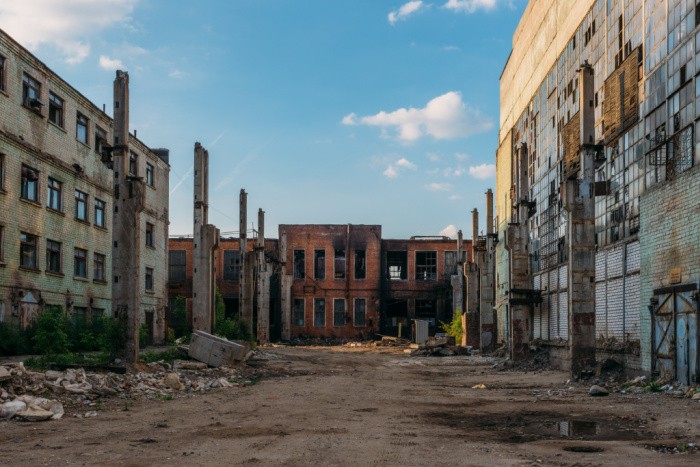

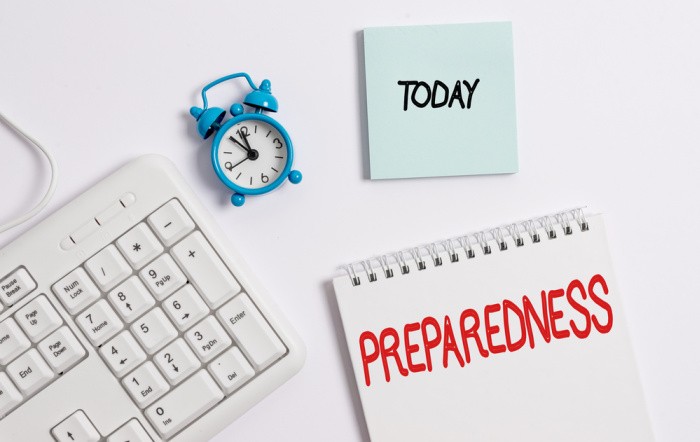

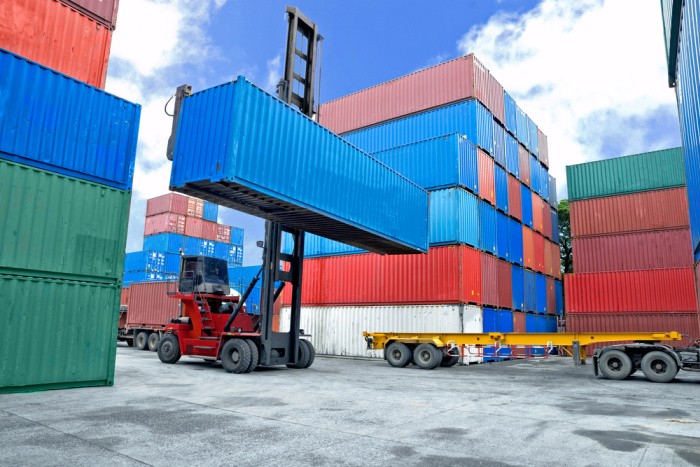

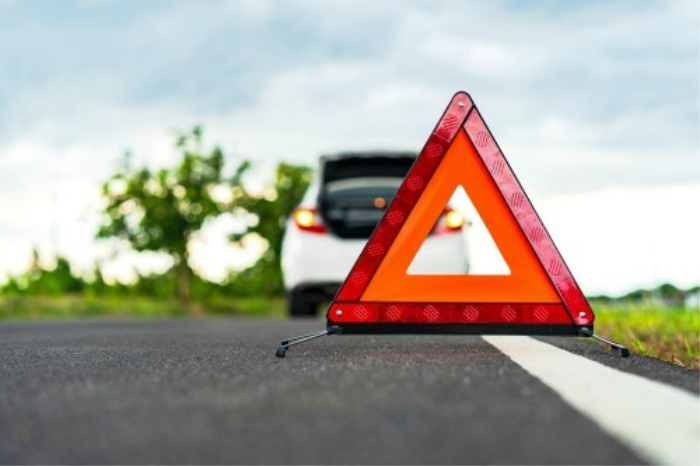
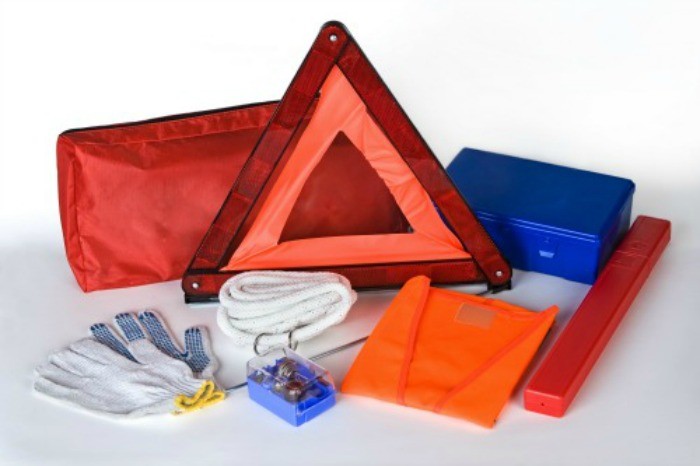


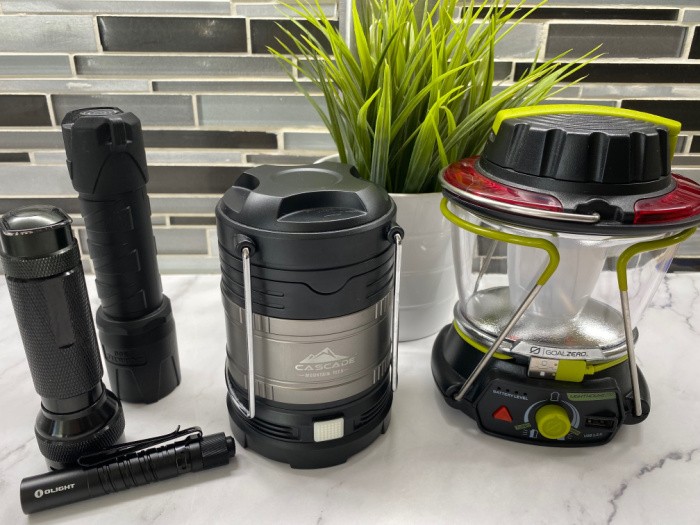
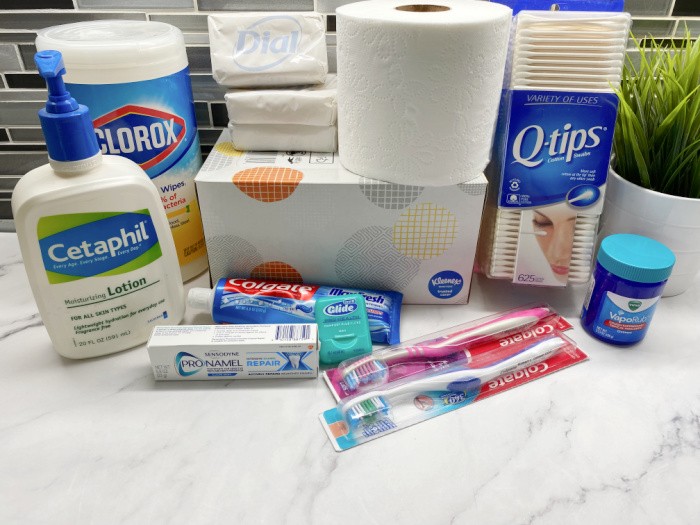
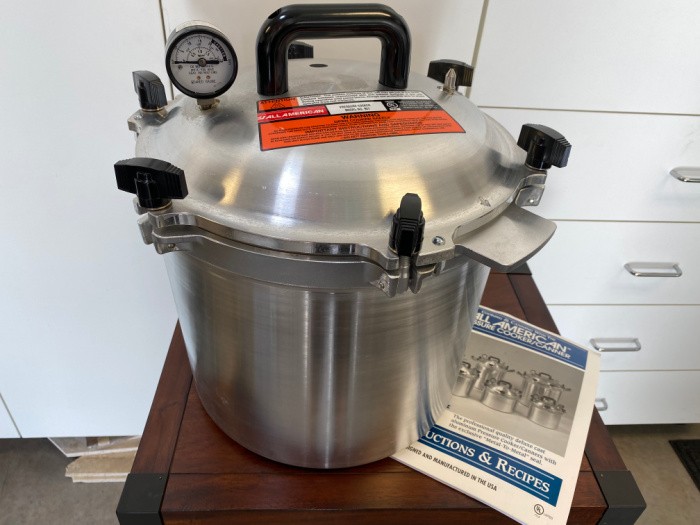




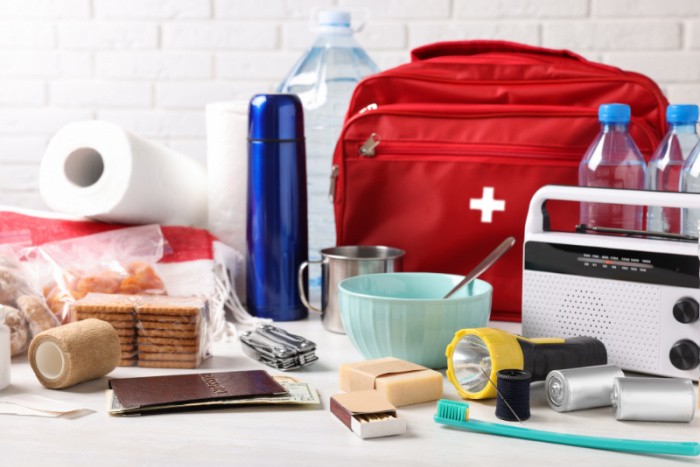
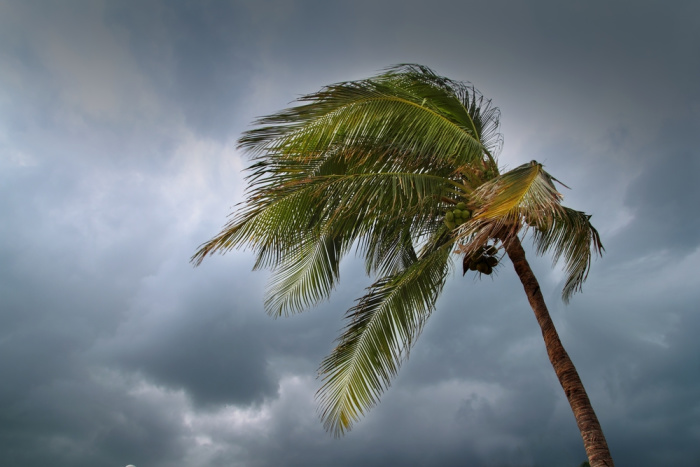
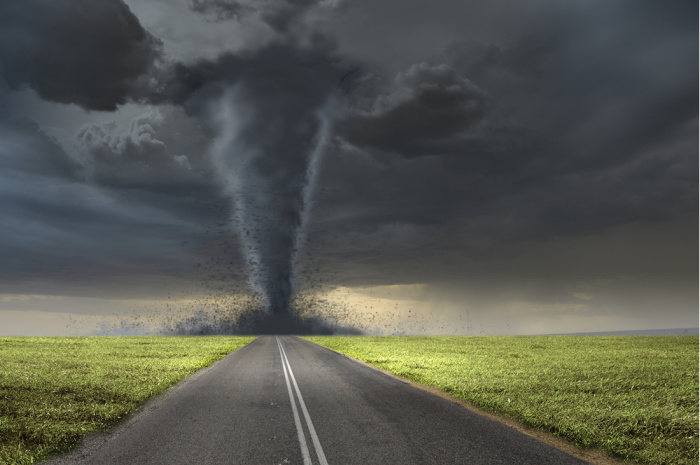

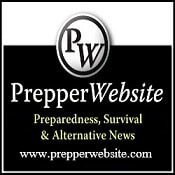
Great info and a great reminder for all of us to practice! Hopefully you will not be on a small island vacationing if this ever happens. You need someplace to bug out to! Be kind of hard to bug out if the whole island or peninsula is under water. Think I’ll stay put.
(stay safe) Bill
Hi Bill, I will be staying put, it makes no sense for me to bug out. I’m with you, home is best for me. Linda
May not be practical but I think the first thing we’re going to do is pray! We’ll need all the help we can get!
Hi Robbie, I agree, prayer will help. A team in the neighborhood would be my wish. It’s not going to happen. May God help all of us. Linda
For those who don’t wear a gun. Wear a gun
For those who do move the longgun into position
OODA
Observe
Orient
Decide
Act
Observe the threat, Orient yourself towards the proper course of action, Decide if this is the correct course of action needed and then ACT.
So you OBSERVE smoke from a wildfire, You ORIENT yourself based on wind direction and distance from your location, You DECIDE you should start loading vehicles and trailers now and then ACT by doing so and not waiting on the government to tell you on a loudspeaker.
Hi Matt, you nailed it as always. I admire all the skills and guidance you share with others. Stay safe, Linda
It is always in the back of my mind what I will do in any given situation. When I enter a building, the first thing I do is locate the exits. The grocery store I frequent, however, only has one main entrance/exit. I do know where the back area is but it is likely filled with product and not as accessible as I want! The same thing I do at church. The usher(s) always want to put me in the center near the front. I just tell them that I don’t want to be that close to the music speakers – too loud!! Then I choose a seat near an exit. Unfortunately, there simply are some things we cannot “practice” ahead of time. I am sure that I will be the one most likely to freeze!!!
In January of 2005, my daughter who was 19 at the time, went to Sri Lanka for mission work in cleaning up/assisting in any way after the tsunami. She didn’t have much time to spare for photos but in her words, it was total devastation. She and her team were put up at a church that she said was relatively unharmed in that it had walls and a partial roof but had not been hit by the waters. There was no electricity, no running water, no bathroom facilities, etc. The only thing they had to eat for the first week they were there was rice and fish. And she said there was very little of both. She spent 3 months there and when she came back to the USA, she said she was so thankful that she lived here. I told her that the same thing could happen to western Washington. I should remind her of her time in Sri Lanka – perhaps she will rethink her position on prepping – she is better but…
So, to prepare for those unexpected scenarios, I try to run things through my mind because I cannot practice before hand!
Hi Leanne, oh my gosh the experience your daughter had in Sri Lanka!! WOW!! The things she saw and took in and the skills she learned!! Great comment! Be safe, Linda
So many Interstates in my area makes it hard to decide to stay or head out. If out will be close to interstate. Have supplies at both. Suggestions?
Hi Kathy, have a plan for both, my situation does not make sense to leave my home. I have everything I need right here to survive. I do not have a second location and I’m fine with that. You will know what to do when something huge hits. You may not be able to leave or the roads will be blocked or even unpassable. Hang tight but be ready for both scenarios. Again, I will not be leaving my home unless an earthquake hits my home. Stay safe, Linda
If you’re prepped ready for any SHTF event – you have your prepper binder of allll knowledge handy >> which includes immediate action checklists specific for each possible SHTF …
there’s certainly commonality between the SHTFs but the order of action might differ and some SHTFs have their particular needs >> IE: nuke SHTF with radiation concerns ….
Hi Illini, I agree with you. Everyone should be ready for any emergency! Linda
Living in the Mojave Desert and being retired I would most likely be home if TSHTF and since I’m a proponent of bugging in, that’s where I’d stay.
Since water is our single most restrictive resource I’d fill up every single container I could lay my hands on–bathtub, bottles, jars, cans, you name it. We’d be okay for food–at least for awhile, but if our town’s water pumps failed things would get grim fast.
But you nailed it when you said stay calm. In my book Bugging In: What to Do When TSHTF and You Live in Suburbia the very first piece of advice I give is STOP AND THINK. That’s conditioned on you not having to outrun a tornado, tsunami or anyone shooting at you of course.
HI Ray, great comment as always. We need water more than anything else or the most I should say. Then food. I had trouble getting my neighbors to store water, even food. Some must not realize how critical it is to stock up. I pretty much stay to myself, which is fine. Mark is here of course, but we are self-sufficient. Life is good if we are prepared, and you and I are. Linda